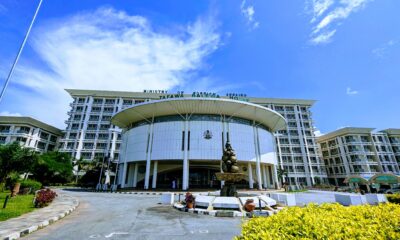Business
How South Africa’s Inflation Rate Hit Highest In 13 Years

By Tolulope Oke
According to a statement of statistics published on the South Africa website, the country’s inflation rate increased to 7.8 per cent in July.
This is coming after the country’s inflation rate hiked to 7.4 per cent in June.
In the months of June and July of this year, the consumer price index (CPI) increased by 1.5%. Only four times since 2008 have monthly increases been 1.5% or more, according to Statistics SA, reflecting that July’s 7.8 per cent is South Africa’s highest in 13 years.
In July, fuel costs rose by more than 10%. Taxi fares increased by 9% in a single month as a result, which had a particularly detrimental effect on transportation costs. Taxis cost 16% higher than they did a year prior. The price of gasoline has increased by 56% since last year.
- READ ALSO: FMDQ Approves Nigerian Breweries N100 Billion Commercial Paper
- READ ALSO: Cameroun, West African Neigbour Is In Need Of Nigeria’s Help
Inflation in the food industry rose to 9.7% in July from 8.6% in June. Cereals and bread cost 13.7% more than they did a year ago.
While the cost of rice decreased by more than 3%, the cost of oils and fats increased by 36% in July over the same month last year.
Average electricity costs increased by 7.5%, which is higher than the 6.3% increase anticipated for 2020 but lower than the 13.8% increase seen last year.
However, compared to non-durable goods inflation (14.4%), which is mostly driven by food, service inflation (+4.2%) and prices for durable goods (+4.8%) were significantly lower.
For the first time in more than four years, core inflation—which excludes items like food, nonalcoholic beverages, gasoline, and electricity—rose to 4.6%. This is over the central bank’s target range of 3% t



























